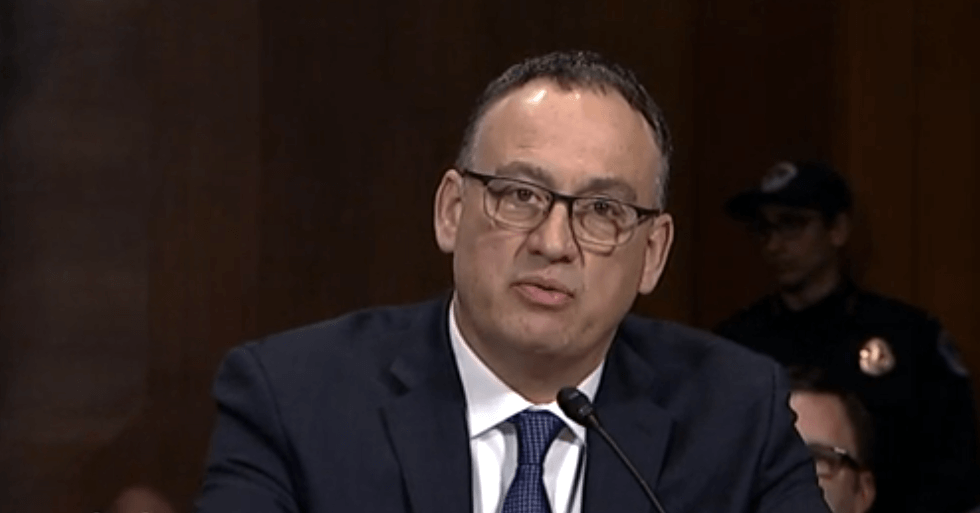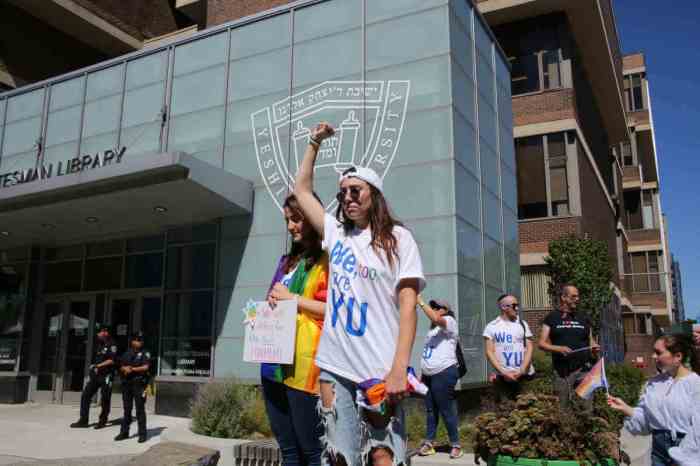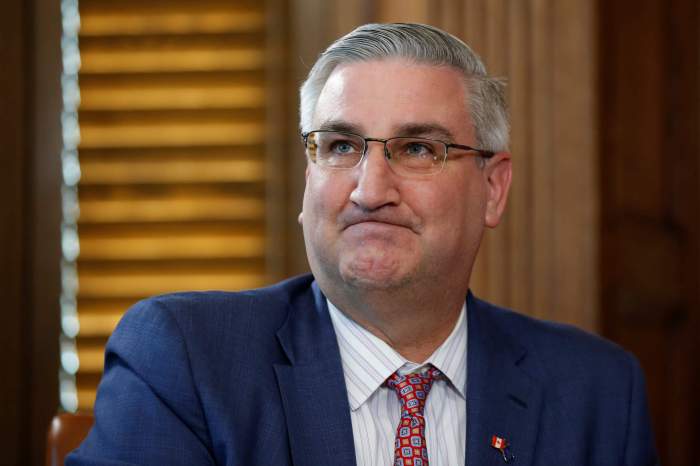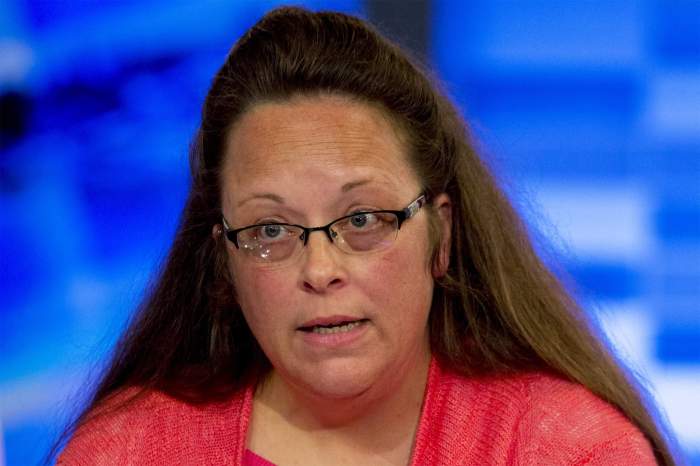A three-judge panel of the Eighth Circuit Court of Appeals issued a decision on December 9 upholding an injunction barring the US Department of Health and Human Services (HHS) and the Equal Employment Opportunity Commission (EEOC) from enforcing against Catholic institutions a rule that forbids healthcare providers from denying gender-affirming care to transgender individuals and that requires employers to cover gender-affirming care in their employee benefit plans.
The ruling upheld an injunction issued on January 19, 2021, by Chief US District Judge Peter D. Welte of the District of North Dakota. Judge Welte was ruling in a lawsuit brought by The Religious Sisters of Mercy (RSM), RSM’s healthcare center, and various other North Dakota plaintiffs, and by Catholic Charities of North Dakota, the Catholic Medical Association, and the State of North Dakota. The injunction protects the plaintiffs and their members from any enforcement action by HHS or the EEOC, but does not directly affect individuals who bring lawsuits for denial of care or coverage against the plaintiffs. The court’s ruling is based on its interpretation of the Religious Freedom Restoration Act (RFRA), which provides a defense against the government’s enforcement of federal laws that substantially burden free exercise of religion.
Although the injunctive relief appears to be focused primarily on North Dakota, the co-plaintiff Catholic Medical Association’s members include Catholic hospitals and healthcare providers in thousands of places around the country, so the practical effect may be to allow all of them to deny provision of gender-affirming care or its financing.
The litigation dates back to the final years of the Obama Administration, when HHS issued a rule interpreting the anti-discrimination provision of the Affordable Care Act (ACA), Section 1557, to forbid discrimination by healthcare entities receiving federal money from discrimination on the basis of sexual stereotypes or gender identity, after the EEOC had interpreted Title VII of the Civil Rights Act of 1964 to ban employment discrimination based on sexual stereotyping or gender identity. Courts have generally followed interpretations of Title VII when they are interpreting Title IX of the Education Amendments of 1972, which forbids educational institutions from discrimination because of sex, and which is incorporated by reference into Section 1557 of the ACA.
The Obama administration rule was issued in 2016, shortly before Donald Trump was elected. The Trump administration advised courts where litigation was then pending challenging the 2016 rule that it would not enforce the contested provisions while it considered replacing them. Litigation in other parts of the country resulted in injunctions being issued by some courts against the Obama administration rule, but when the Trump administration issued its new rule in June 2020, deleting protection against gender identity discrimination, some other federal courts issued injunctions against that rule. In the meantime, individuals suing for discrimination by employers (including states that provide health insurance for their employees) won significant victories under Section 1557, which the Supreme Court has interpreted to provide a “private right of action.” The overall situation regarding these rules and their application is thus quite messy.\
What is at stake for the plaintiffs in this and several similar cases brought by religious plaintiffs pending in other parts of the country is the possibility of being disqualified from participating in the Medicaid and Medicare programs, being fined, or being subjected to court orders in lawsuits by the government, if a court finds that they have violated the ACA’s anti-discrimination requirements.
The government argued that the lawsuit in North Dakota, which was aimed at attacking enforcement of the 2016 Rule, should be dismissed as moot, because the 2020 Trump administration rule revoked the 2016 rule. But the plaintiffs prevailed on their argument that they were attacking the interpretation of Section 1557 and Title VII – as to which the EEOC during the Trump administration did not back away from its interpretation of Title VII to ban gender identity discrimination. The EEOC’s position was vindicated around the time the Trump administration issued its 2020 rule when the Supreme Court ruled in Bostock v. Clayton County that Title VII encompasses discrimination because of “transgender status.”
The Supreme Court ruling was followed five months later by the election of Joe Biden, who then took office in January 2021 and directed his administration to follow the Bostock decision in enforcing federal sex discrimination laws. HHS sent notifications to healthcare entities covered by the ACA later in 2021, announcing that it was interpreting Section 1557 to cover gender identity claims, and that refusals to perform gender-affirming care to transgender individuals could result in liability under that statute.
The Obama, Trump, and Biden administration interpretations of Section 1557 also differed over whether the exemption of religious educational institutions from compliance with Title IX should be considered as part of Title IX’s inclusion by reference in Section 1557. As one would expect, during the Obama administration HHS said that the religious educational institution exemption did not apply to Section 1557, but the Trump Administration took the contrary view, and some courts ruling on challenges to the gender identity rule have sided with the Trump administration on this.
In the Bostock decision, Justice Neil Gorsuch wrote for the court that it was ruling only on the question whether discrimination because of sexual orientation or transgender status violates Title VII, and not on how to interpret other federal statutes. The three cases joined in appeal in Bostock v. Clayton County all involved plaintiffs who claimed that they were discharged because of their sexual orientation or gender identity, and the court ruled that they could sue under Title VII, reversing contrary rulings by the 11th Circuit (sexual orientation) and affirming rulings by the Second Circuit (sexual orientation) and the Sixth Circuit (gender identity). The Trump administration sought to give Bostock a narrow interpretation and argued that it did not affect their new Rule interpreting Section 1557 of the ACA. Justice Gorsuch also referred to the Religious Freedom Restoration Act (RFRA) as a “super statute” that could be relevant to religious freedom claims asserted by employers in Title VII cases.
This past summer, HHS published new proposed regulations that would basically restore and extend the Obama Administration’s 2016 regulations and make clear that gender identity discrimination is forbidden under the ACA and that refusal of healthcare providers and insurers to provide and cover such care violates Section 1557.
The case of Religious Sisters of Mercy v. Xavier Becerra (Secretary of HHS) now focuses on whether the plaintiffs are protected by RFRA from any enforcement action by HHS or the EEOC. The district judge answered that question affirmatively in 2021, based on the guidelines and notifications sent out by HHS stating that they would enforce the prohibition on gender identity discrimination relying on the reasoning of the Bostock case. Although HHS and EEOC have not yet actively pursued Catholic hospitals or other Catholic institutions, the plaintiffs persuaded the district court, and ultimately the court of appeals, that the threat of enforcement was sufficient to give the plaintiffs standing to bring this lawsuit and seek injunctive relief.
Most of the December 9 opinion by Chief Judge Lavenski Smith of the Eighth Circuit is focused on the issue of standing. The court accepts that the plaintiffs have a good defense against any enforcement action by virtue of RFRA, which places the burden on the government to show that it has a compelling interest in enforcing a challenged law that substantially burdens free exercise of religion, and that enforcing the law is the least restrictive alternative to achieving that interest. Smith’s opinion supports Judge Welte’s contention that if the government has a compelling interest in making sure that transgender people can get gender-affirming care, it can achieve that without forcing Catholic institutions to violate their religious beliefs by compelling them to perform the procedures or finance them.
Chief Judge Welte was appointed by President Donald J. Trump. Chief Judge Smith was appointed by President George W. Bush. The other judges on the three judge panel are Judge Raymond Grueder, also appointed by Bush, and Judge Jonathan Kobes, a Trump appointee. The Eighth Circuit Court of Appeals is dominated by Republican appointees — 10 of the 11 active judges on the court.



































